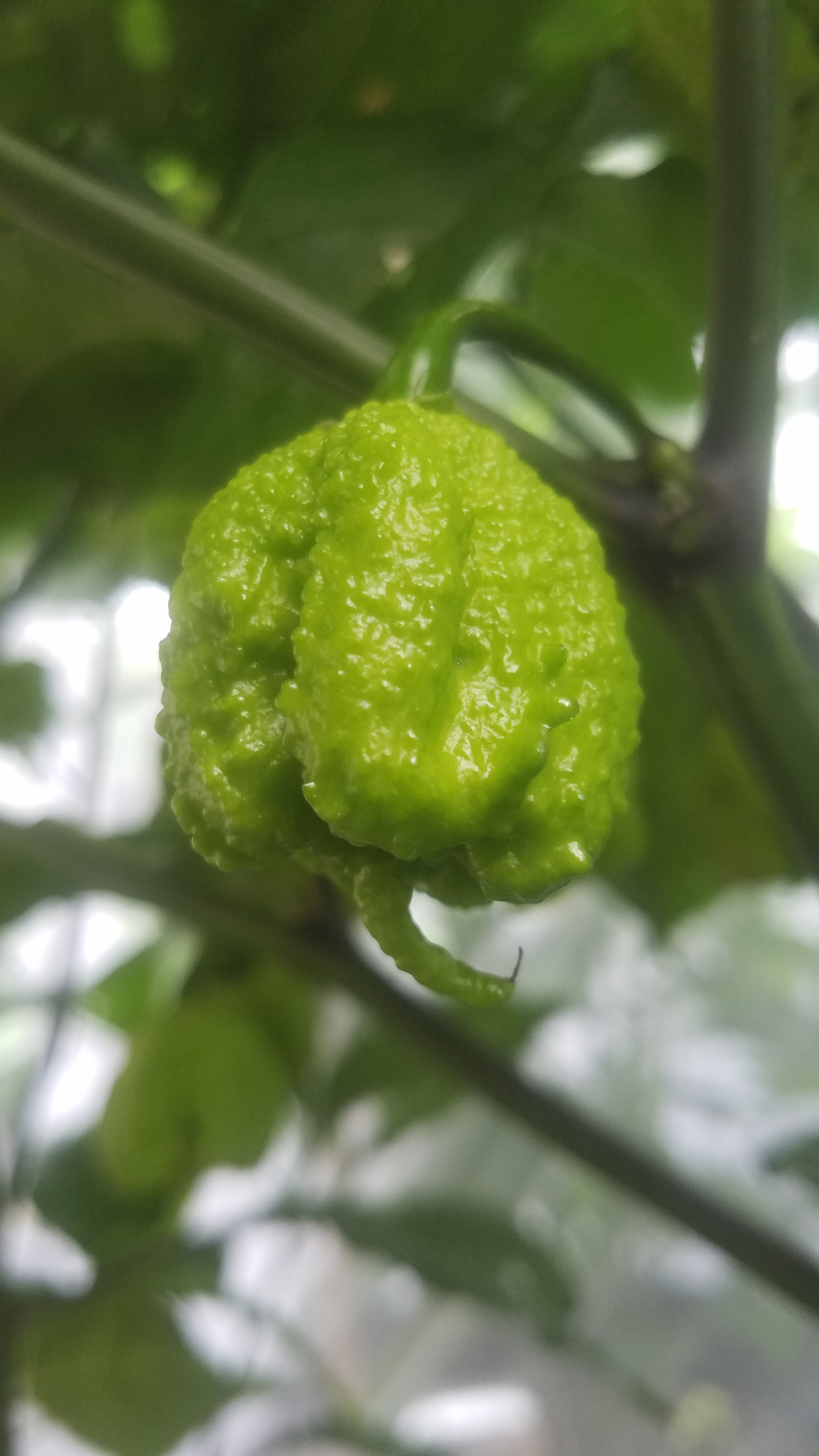 Image 1 of 7
Image 1 of 7

 Image 2 of 7
Image 2 of 7

 Image 3 of 7
Image 3 of 7

 Image 4 of 7
Image 4 of 7

 Image 5 of 7
Image 5 of 7

 Image 6 of 7
Image 6 of 7

 Image 7 of 7
Image 7 of 7








Carolina Reaper
The Carolina Reaper one of the most famous and controversial chili peppers in the world, renowned for holding the title of the "world's hottest pepper." Developed by Ed Currie of the PuckerButt Pepper Company in South Carolina, the Carolina Reaper is a cross between a Pakistani Naga pepper and a Red Habanero. Officially recognized as the world’s hottest pepper by Guinness World Records in 2013, Scoville Heat Unit (SHU) rating of over 1.6 million, with some individual peppers reportedly exceeding 2.2 million SHU. The Reaper's notoriety stems not only from its extreme heat but also from the controversy surrounding its genetic lineage. Questions have been raised about its genetic stability and whether it is a true hybrid or a stabilized variety. Accusations from different communities within the chili world have emerged, casting doubt on the exact origins of the Carolina Reaper. Compelling arguments have been made regarding the legitimacy and authenticity of the Reaper, prompting ongoing discussions among chili enthusiasts. A lingering question in the chili community is whether the Reaper will maintain its status as the hottest pepper in the world, especially as other growers claim to have developed peppers that are even hotter. Only time will tell if the Reaper will continue to hold its title in the ever-evolving world of extreme chili peppers.
The Carolina Reaper one of the most famous and controversial chili peppers in the world, renowned for holding the title of the "world's hottest pepper." Developed by Ed Currie of the PuckerButt Pepper Company in South Carolina, the Carolina Reaper is a cross between a Pakistani Naga pepper and a Red Habanero. Officially recognized as the world’s hottest pepper by Guinness World Records in 2013, Scoville Heat Unit (SHU) rating of over 1.6 million, with some individual peppers reportedly exceeding 2.2 million SHU. The Reaper's notoriety stems not only from its extreme heat but also from the controversy surrounding its genetic lineage. Questions have been raised about its genetic stability and whether it is a true hybrid or a stabilized variety. Accusations from different communities within the chili world have emerged, casting doubt on the exact origins of the Carolina Reaper. Compelling arguments have been made regarding the legitimacy and authenticity of the Reaper, prompting ongoing discussions among chili enthusiasts. A lingering question in the chili community is whether the Reaper will maintain its status as the hottest pepper in the world, especially as other growers claim to have developed peppers that are even hotter. Only time will tell if the Reaper will continue to hold its title in the ever-evolving world of extreme chili peppers.
The Carolina Reaper one of the most famous and controversial chili peppers in the world, renowned for holding the title of the "world's hottest pepper." Developed by Ed Currie of the PuckerButt Pepper Company in South Carolina, the Carolina Reaper is a cross between a Pakistani Naga pepper and a Red Habanero. Officially recognized as the world’s hottest pepper by Guinness World Records in 2013, Scoville Heat Unit (SHU) rating of over 1.6 million, with some individual peppers reportedly exceeding 2.2 million SHU. The Reaper's notoriety stems not only from its extreme heat but also from the controversy surrounding its genetic lineage. Questions have been raised about its genetic stability and whether it is a true hybrid or a stabilized variety. Accusations from different communities within the chili world have emerged, casting doubt on the exact origins of the Carolina Reaper. Compelling arguments have been made regarding the legitimacy and authenticity of the Reaper, prompting ongoing discussions among chili enthusiasts. A lingering question in the chili community is whether the Reaper will maintain its status as the hottest pepper in the world, especially as other growers claim to have developed peppers that are even hotter. Only time will tell if the Reaper will continue to hold its title in the ever-evolving world of extreme chili peppers.
